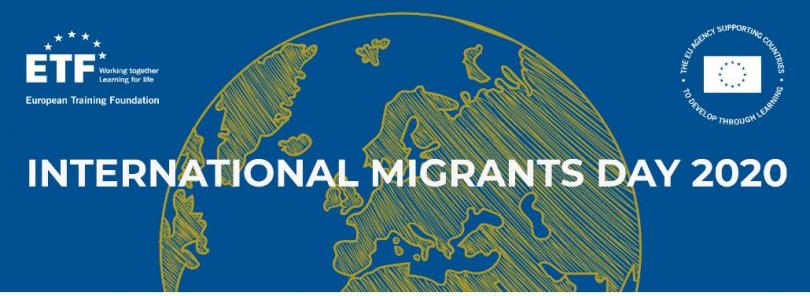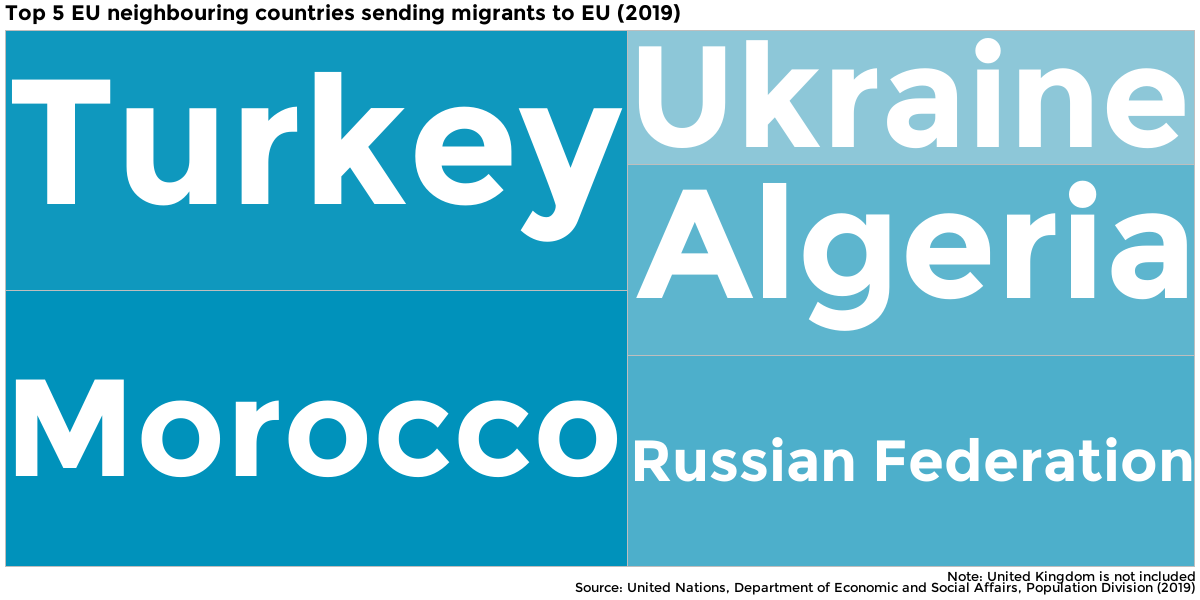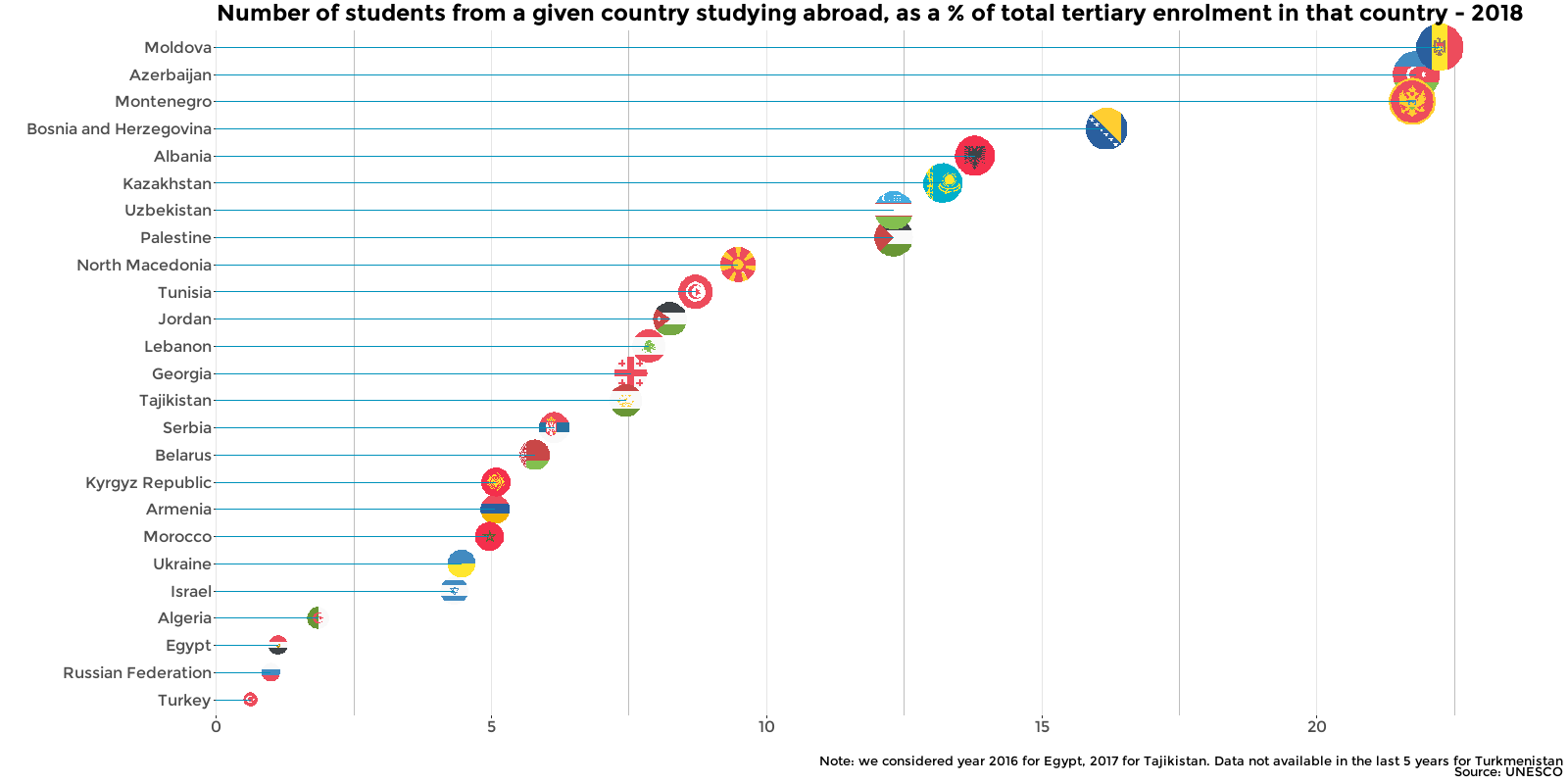
International Migrants Day: insights from ETF partner countries
Today - 18 December - is designated by the United Nations as International Migrants Day. Migration is an important topic worldwide. Keeping track of people's movements between countries is key to monitoring the evolution of labour markets and developing education and training policies that take the skills of migrants into account. To mark International Migrants Day the ETF would like to share some of the data we have collected from the EU's neighbouring regions.
Top 5 neighbouring countries sending migrants to the European Union 2019
Many people have moved to work, study or join family members in the European Union from neighbouring countries. EU27 had more than 32 million migrants provided from the top 25 sending countries worldwide and over 10 million arrived from the top 5 neighbouring countries: Morocco, Turkey, Russian Federation, Algeria and Ukraine (stock value in 2019).

Reasons for migrating to the EU from ETF Partner countries from 2010 to 2019
The total number of valid residence permits granted by EU member states to people coming from the 27 neighbouring countries with which ETF works, increased by over 1.3 million in the last decade. Focusing on the family, work and study reasons, in 2019 the total permits granted for family reasons was 4.1 million (+ 753.191 compared to 2010), for work reasons the number of permits was 1.8 million (+ 386.471), and for study reasons the permits granted were 237.100 (+ 81.357).
Percentage studying abroad
The high percentage of students from ETF partner countries in higher education abroad shows a tendency for young people to look for opportunities in other countries. In many of the neighbouring countries, the ‘outbound mobility ratio’ i.e. the number of students from a given country studying abroad expressed as a percentage of total tertiary enrolment in that country, is over 5%, with peaks of over 20% in Moldova, Azerbaijan, Montenegro.

.
Background
In line with its mission and strategy, the ETF contributes to addressing UN SGD 4 for inclusive and equitable education, with a key focus on migrants: “By 2030, substantially increase the number of youth and adults who have relevant skills, including technical and vocational skills, for employment, decent jobs and entrepreneurship”.
Did you like this article? If you would like to be notified when new content like this is published, subscribe to receive our email alerts.